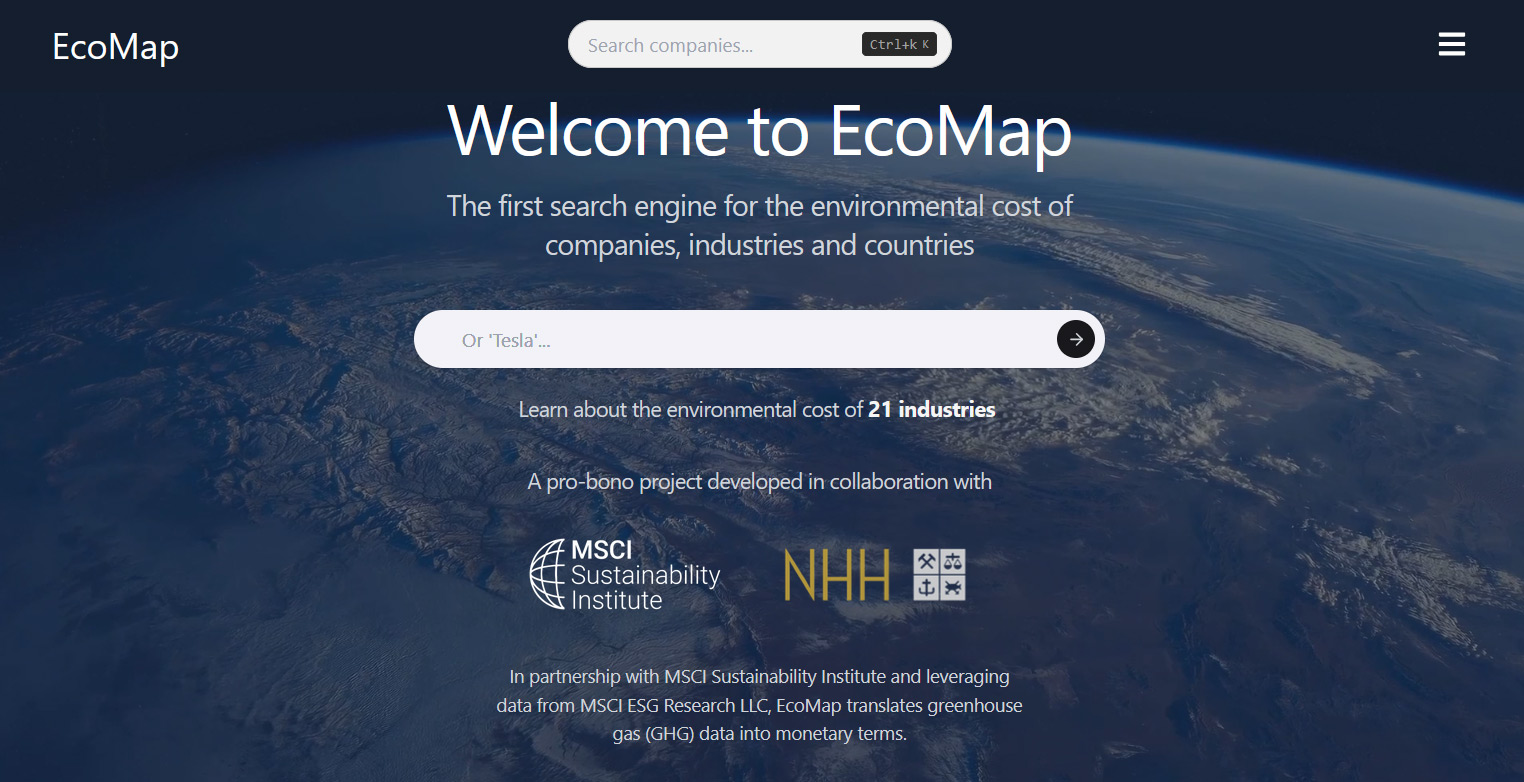The externalities tied to companies’ carbon footprints may soon be more transparent, thanks to a searchable database developed by the nonprofit initiative EcoMap in collaboration with the MSCI Sustainability Institute and researchers at Norwegian School of Economics (NHH).
EcoMap translates greenhouse gas (GHG) emissions and other reported environmental data for roughly 20,000 listed companies into a tangible social cost of carbon. The metric expresses in monetary terms the impact of those emissions on society, offering a perspective on the implications of corporate environmental footprints that can be more easily understood by stakeholders.
By enabling stakeholders to understand the the fuller economic impact of corporate activities, EcoMap offers insight into the intersection of sustainability and profitability. Insights from EcoMap may also help to promote alignment of policy and regulation with sustainability goals.
EcoMap is making the monetary estimates, which it derives from both peer-reviewed academic research and emissions data supplied by MSCI ESG Research LLC, freely accessible via a platform developed jointly with researchers at NHH.
Ecomap aims to standardize assessments of social cost by providing data that complements financial and sustainability reporting. The platform highlights societal costs associated with companies’ carbon footprints, including their impact on human health, natural disasters, ecosystems and agriculture.
Illuminating impact
Illuminating the social costs – or negative externalities – of companies’ businesses provides an important dimension of their societal impact. For a holistic picture of total impact, social costs could be complemented by an estimate of social benefits – or positive externalities, such as training of workers and taxes paid by companies.
EcoMap is collaborating with the International Foundation for Valuing Impacts, a spinoff of the Impact-Weighted Accounts Project at Harvard Business School, to integrate companies’ impacts on water consumption, biodiversity, air pollutants, and waste management at a regional level. This effort aims to ensure that the platform remains at the forefront of sustainability accounting, aligning with evolving standards such as the framework developed by the International Sustainability Standards Board.
EcoMap’s standardized approach allows for macro-level comparisons, allowing policymakers, researchers, and industry groups to assess environmental performance across sectors and geographies.

There is a long history in academic and policy research of refining methodologies for calculating the social cost of carbon. EcoMap’s initiative is making more accessible the most current developments to equip decision-makers, including consumers, managers, capital providers and policymakers, with a fuller set of information.
Ultimately, accounting for all costs and benefits, not just the easily measurable ones on companies’ financial accounts today, can improve the efficient allocation of capital.



